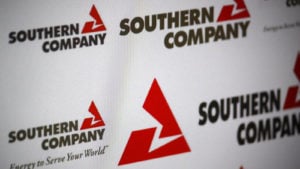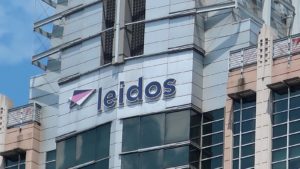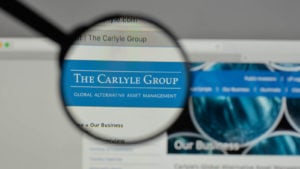Shareholder friendly.
Those two words sum up income stocks. It means these stocks have decided to take some of their net income and deliver it back shareholders on a regular basis.
It means their businesses aren’t run for the most growth, but for steady long-term wealth accumulation. Yes, the stocks rise and the companies grow, but some of that cash for expansion is returned to shareholders on a regular basis.
Some industries are famous for their income — real estate investment trusts, utilities, master limited partnerships. But usually, mature companies where explosive growth is no longer the driving force, are the most solid dividend payers. At my Growth Investor service, we own a stable of these companies in our Elite Dividend Payers portfolio.
Here, while my Portfolio Grader found plenty of “A”-rated dividend stocks, I wanted to pick stocks that also delivered reliable dividends that would beat inflation as well.
These seven “A”-rated dividend stocks to depend on all fit that bill except one, where growth is just too tempting to pass up, so its yield is a little light.
Dividend Stocks to Buy: Southern Company (SO)

Dividend Yield: 3.6%
Southern Company (NYSE:SO) is the second largest utility in the U.S. It runs the power companies for Georgia, Mississippi and Alabama. It also has extensive natural gas operations up and down the East Coast.
It’s the only utility in the U.S. that is building a new nuclear facility. Then its project management partner and nuke builder Westinghouse went bankrupt. That meant Southern had to take over the entire project.
And it has done well. While the completion date has been pushed to 2021 or 2022, things are moving along on schedule.
On the growth side, its massive natural gas distribution business as well as its renewable energy business are doing very well. And it’s one of the best-run utilities out there.
With a 3.6% dividend and 12-month return of 46%, SO stock is a rock-solid pick for any portfolio.
Procter & Gamble (PG)

Dividend Yield: 2.4%
Procter & Gamble (NYSE:PG) has been in business since 1837.
Wrap your head around that. It has been around for more than 150 years. Martin Van Buren was president when PG launched in Ohio. J. P. Morgan was born that year. There were still border wars with First Nation tribes.
When you have been around that long, it means you’re doing something right from the boardroom down to the products.
Now, there have been some challenges of late, as new generations of less brand-conscious consumers have hit the markets and PG had to readjust its product portfolio.
But it is finally through that transition. PG has raised its dividend every year for the past 60 years. That is an accomplishment few stocks can make. And it’s that kind of focus on shareholder value that makes this unique.
The 2.4% dividend may not be huge, but it’s consistent. And its 33% stock gain in the last year is also a nice kicker. However, if you do also want growth in your portfolio, there are better places to find it going forward.
Equity Residential (EQR)

Dividend Yield: 2.7%
Equity Residential (NYSE:EQR) is a Chicago-based real estate investment trust (REIT) that specializes in upscale apartments in some of the top cities in the U.S. You can find its properties in San Francisco, Los Angeles, New York, Washington, D.C., Boston, Seattle and more.
In these types of cities, many people that work for big firms receive relocation allowances to find a place to live until they can settle in. Some firms even lease apartments and allow their employees to use them if they’re in town on long-term assignments.
That makes these cities’ real estate needs unique. And that is a good thing for a niche player like EQR. It can keep its occupancy rate high, as well as its rates, because it offers top locations and quality accommodations in strategic cities.
Now that prices in many of these cities have become incredibly expensive, renting has also become a real option for residents that want, and can afford, the convenience of downtown locations.
The stock is up 18% in the past year and has a solid 2.7% dividend.
Dominion Energy (D)

Dividend Yield: 4.4%
Dominion Energy (NYSE:D) is one of the leading utilities in the country. It can stretch its roots back to 1795, but in its most recognizable form, it’s been around for a century.
It supplies electrical power to Virginia (which is part of the internet backbone, houses the Pentagon and one of the largest shipbuilding plants in the world) and also has an extensive natural gas production and distribution network that covers the Eastern seaboard and beyond.
Dominion also has a number of wholesale power generation plants that extend into the Midwest.
Its Cove Point plant in Maryland is being converted from a natural gas import hub to an export port for liquified natural gas (LNG). It will be one of the few on the East Coast and will see a significant rise in business as export restrictions on LNG fall. Oil-and-gas logistics are actually a theme we’re profiting from within our Growth Investor buy list.
But overall, D is a solid, successful company that offers few surprises. And that’s a good thing for an income stock. In the past year Dominion stock was up 21%, and it continues to deliver a rock-solid dividend, now yielding 4.4%.
Leidos (LDOS)

Dividend Yield: 1.3%
Leidos (NYSE:LDOS) isn’t throwing off a staggering dividend yield, at 1.3%. But this is a growing, dynamic company that is well positioned for the future of defense and security in the U.S. and beyond.
It has a storied history that stretches back to 1969. And it has been a private contracting institution since its early days. It has worked on some of the biggest scientific challenges the U.S. government has come up against in the past 50 years.
And now, it is focused on aerospace technologies. A recent $1.7 billion merger with aerospace firm Dynetics was announced just a month ago.
This put LDOS in prime position for all the space work that is heating up both on the government side — the Space Force — and the private side — the big defense contractors that build the equipment for the government.
As a smaller player in the aerospace and defense sector, it can leverage its growth because it is more concentrated.
But given the fact that all the major industrial powers now have active aerospace programs, this is the next frontier. And LDOS is already a reliable partner.
And while the dividend isn’t a big driver, the fact the stock is up 80% in the past year yet sits at a price-to-earnings ratio of 22 means that growth is just beginning.
Carlyle Group (CG)

Dividend Yield: 3.6%
Carlyle Group (NASDAQ:CG) is one of my favorite companies when it comes to foundational stocks that deliver solid dividends.
It’s a private equity firm that continues to draw exclusive clients from the corridors of power around the world. The kind of people and families that make decisions that make business happen.
You know, royal families from the Middle East. Political dynasties in the U.S. World leaders from around the globe.
But CG has always been discreet. It does deals, makes its money, disburses it to shareholders and keeps a low profile in a business that is often just as much about headlines as assets under management. It’s the kind of business that deserves consideration for any Growth Investor.
It’s a steady hitter, not a swing for the fences kind of operation.
But it certainly delivers for shareholders. In the past 12 months, CG stock was up a stunning 95%, yet it continues to deliver a bountiful 3.6% dividend. And it has done all this with a trailing price-to-earnings ratio of … 12.
PennyMac Mortgage Investment Trust (PMT)

Dividend Yield: 8.1%
PennyMac Mortgage Investment Trust (NYSE:PMT) is one of my favorite stocks now because it’s well positioned for all the good things happening in today’s economy.
With interest rates low, a solid economy, low unemployment and confident consumers, the housing market is well positioned for strong growth.
PennyMac is a great way to play this trend.
It doesn’t own properties, it manages the mortgages of residential properties. It originates them, manages them, bundles them and resells them.
Plus, it’s set up as REIT, which means it is obligated to pay its net income back to shareholders, and it chooses to do that via its hefty dividend of 8.1%. Plus, the Tax Cuts and Jobs Act now allows REIT investors to deduct 20% of their dividend. Then, the remainder is taxed at the shareholder’s marginal rate. Check with your tax professional for more details.
The stock is up a solid 19% in the past year and it still trades at a single-digit P/E.
That being said, in the big picture, there’s been a major development in the technology field I’m especially keen on now: artificial intelligence (AI)
The AI Master Key
If artificial intelligence sounds futuristic, even far-fetched — well, keep in mind, you’re already using it every day. If you’ve ever used Alphabet’s (NASDAQ:GOOG, NASDAQ:GOOGL) Google Assistant or Apple’s (NASDAQ:AAPL) Siri … if you’ve had Netflix (NASDAQ:NFLX) recommend a movie or Zillow (NASDAQ:Z) recommend a house … even an email spam filter … then you’ve used artificial intelligence.
In this new world of AI everywhere, data becomes a hot commodity.
As scientists find even more applications for artificial intelligence — from hospitals to retail to self-driving cars — it’s incredible to imagine how much data will be involved.
To create AI programs in the first place, tech companies must collect vast amounts of data on human decisions. Data is what powers every AI system. As one AI researcher from the University of South Florida puts it, “data is the new oil.”
To cash in, you’ll want the company that makes the “brain” that all AI software needs to function, spot patterns and interpret data.
It’s known as the “Volta Chip” — and it’s what makes the AI revolution possible.
You don’t need to be an AI expert to take part. I’ll tell you everything you need to know, as well as my buy recommendation, in my special report for Growth Investor, The A.I. Master Key. The stock is still under my buy limit price — so you’ll want to sign up now. That way, you can get in while you can still do so cheaply.
Click here for a free briefing on this groundbreaking innovation.
Louis Navellier had an unconventional start, as a grad student who accidentally built a market-beating stock system — with returns rivaling even Warren Buffett. In his latest feat, Louis discovered the “Master Key” to profiting from the biggest tech revolution of this (or any) generation. Louis Navellier may hold some of the aforementioned securities in one or more of his newsletters.
